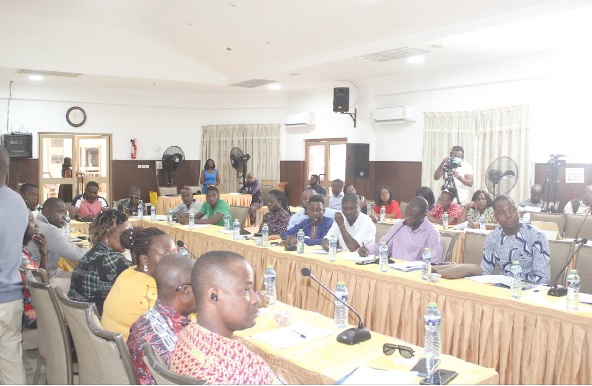
High inputs cost undermines govt support for PFJ – Report
A research assessment has established that the rising cost of input packages for farmers is undermining the government’s support for the Planting for Food and Jobs (PFJ) programme.
It said while the government’s subsidy made the inputs affordable in 2017 and 2018 , the cost of inputs shot up in 2019, making it difficult for farmers to access them.
“The price of maize seeds, for instance, increased from GH¢2 in 2017 to GH¢18 in the 2021 farming season based on whether the variety was Open Pollinated Varieties, local hybrid or imported hybrid,” a researcher with the Third World Network-Africa (TWN-Africa), Dr Faustina Obeng, said in a presentation in Accra.
“These prices in the shop were slightly higher than the price quoted by the PFJ intervention, which stood at GH¢5 to GH¢12 in 2021 and GH¢7 to GH¢15 in 2022. The price of fertilisers also increased substantially from GH¢58 in 2017 to GH¢320 in 2022 for NPK,” she said.
Dr Obeng was speaking at a workshop organised by TWN-Africa for farmers, agriculture directors, agriculture extension agents and other sector players, where she presented findings on her research, titled: “Contribution of Planting for Food and Jobs (PFJ) and One District One Factory (1D1F) to Ghana’s Structural Economic Transformation”.
She said the PFJ was less targeted and less inclusive of resource-poor farmers due to agriculture extension agents’ prioritising farmers who were considered as trustworthy and creditworthy instead of the PFJ’s criteria of targeting productive-poor and resource-poor farmers.
She added that the PFJ input subsidy had little impact on the overall net increase in fertiliser use, explaining that while PFJ supply of fertiliser increased, commercial sales dropped, as only five per cent of PFJ beneficiaries were first-time fertiliser users.
Over reliance on imported fertiliser
Dr Obeng urged the government to invest in factories that could manufacture fertiliser to avoid overreliance on imported fertiliser in order to manage cost for farmers.
She said “local manufacturing of fertiliser is necessary to offset the unintended consequences of import uncertainties on availability and affordability of inputs for farmers” to increase the use of fertilisers, which came with its consequent growth in outputs.

Dr Obeng said the current fertiliser system heavily relied on imports and had been heavily affected by the exponential increase in shipping cost, making it difficult for smallholder farmers to afford the fertilisers without which the seed varieties would perform poorly.
She added that there was the need for a long-term plan on improving productivity with locally available materials and supplement it with mineral fertilisation that was domestically produced and could be afforded by farmers.
Recommendations
Dr Obeng urged the government to invest in sustainable intensification methods that were less dependent on imported inputs from the short to medium term as well as establishing a buoyant fertiliser manufacturing industry in the long term as it was being done for the seed production sector.
She added that the PFJ needed a mass input subsidy programme with a selective credit scheme for sustainable and equitable input subsidy programme.
“Subsidising all inputs at source to make it relatively affordable on the open market seems a more sustainable alternative to curtail the challenges of crowding out, diversification and profiteering at the expense of intended beneficiaries”, she said.
Dr Obeng also encouraged stakeholders to build effective storage facilities and warehousing system to connect periods of glut to periods of scarcity, adding that building these effective storage and distribution channels would allow farmers to avoid the pitfall of production glut and its associated drop in prices within the current marketing arrangement.
